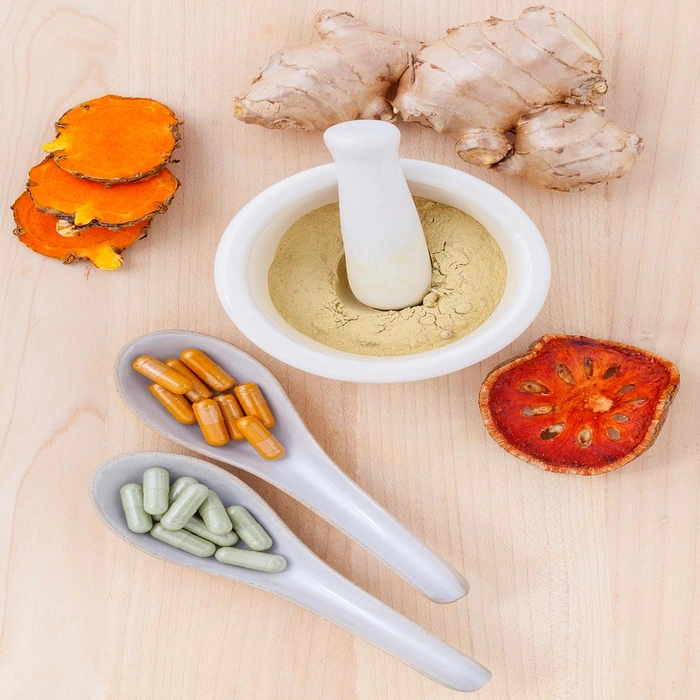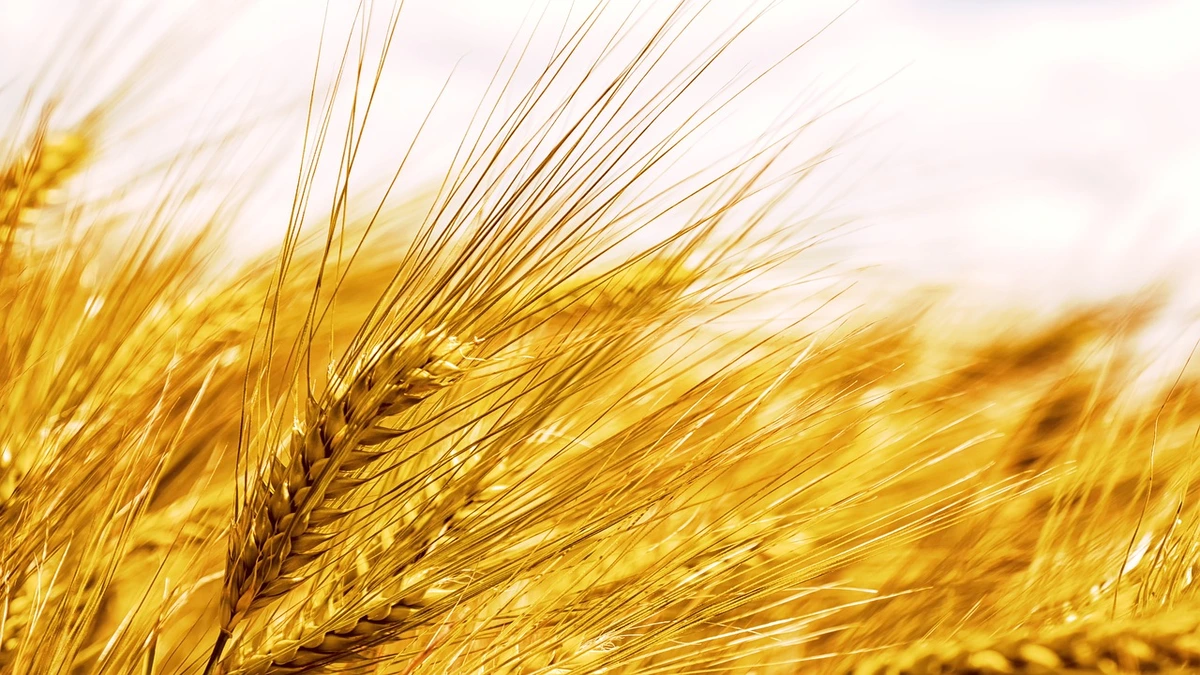Fiber is an important nutrient for keeping your digestive system healthy, controlling your cholesterol, and even promoting heart health through proper dietary fiber intake. Despite its importance, many of us need to consume more fiber per day. In this article, we try to figure out how important fiber is in your diet, what the benefits of fiber soft gel Metamucil are, and answer some common questions about fiber, what it is and its types, and how fiber impacts overall health. Understanding fiber can help you be empowered to make better dietary choices.
What is Fiber & Why is it Important?
Carbohydrates that the body cannot digest are called Fiber. Unlike other carbohydrates, fiber does not break down into sugar molecules when passed through digestive system. There are 2 main types of Fiber: soluble and insoluble. Soluble Fiber dissolves in water, adding bulk to the food your body absorbs. On the other hand, insoluble fiber has more of a ‘roughage’ effect and helps prevent constipation because it moves through the intestine relatively unabsorbed.
Getting enough Fiber in your diet is essential to keep a healthy digestive tract, prevent constipation, and reduce your risk of gastrointestinal disorders. Research also suggests that fiber may lower your risk of developing a chronic disease (such as heart disease, diabetes, and cancer), emphasizing the importance of fiber supplementation. For this reason, knowing what Fiber means and how it is featured in your diet is important for being healthy.
What Types of Fiber are There??
Fiber is primarily categorized into two types: soluble and insoluble. Foods that contain soluble fiber include oats, legumes, apples, and citrus fruits. It works to form a gel-like substance in the gut and helps regulate blood sugar levels, as well as lower cholesterol. Here, insoluble fiber exists in whole grains, nuts, and vegetables, while soluble fiber is found in oats, barley, cassava, and fruit. It adds bulk to the stool and avoids constipation through regular bowel movements.
The third category is functional fiber, consisting of isolated or manufactured fibers added to foods or supplements. Examples include psyllium, used in most fiber supplements, and Metamucil, one of these. These types come in handy when people select the appropriate fiber source based on their health needs, especially when considering the effects of soluble dietary fiber.

Daily fiber needs – How much Fiber do you need??
Fiber intake is recommended by age and gender to ensure adequate dietary fiber intake for optimal health. We usually suggest adults get about 25 grams of fiber daily if they’re women and about 38 grams if they’re men. Yet most Americans get only about 15 grams daily, short of those suggestions.
What’s important is to increase fiber slowly so you’re getting enough. Consuming too much in a sudden spike may give you digestive discomfort, like cramping or bloating, and looking for ways to sneak in some good fiber daily. While fiber is essential for your well-being, the most important thing to remember when incorporating it into your diet is that too much of anything, including fiber, can harm your health.
What are the Dietary Sources of Fiber?
Fiber is found in many different dietary sources, so it’s easy to put into your daily meals. Soluble and insoluble fiber comes from various fruits, including berries, apples, and bananas. Brows, carrots, and Brussels sprouts also supply a lot of fiber.
Whole grains like brown rice, quinoa, and whole wheat bread are vital to a fiber-rich diet. In addition, lentils, beans, and chickpeas are among the top sources of fiber. Nuts and seeds also have fiber and healthy fats, but last. If you want to increase your fiber, the best thing you can do is diversify and add many more of these foods into your diet.
What are Fiber Supplements and How Do They Work?
These are dietary supplements formulated to supply additional fiber in concentrated form as a powder, capsule, or chewable. Individuals who struggle to get enough dietary fiber intake in their daily diet can benefit from these dietary supplements.
Supplements are loaded with psyllium, which is said to be one of the most common types of fiber available. Psyllium is derived from seeds of the Plantago ovata plant, where the soluble fiber it contains is famous for its ability to manage constipation and support your gut health. To ensure you’re getting the benefits of fiber, it’s necessary to take fiber supplements as part of an overall balanced diet rather than as a substitute for whole foods.
How is Metamucil used, and what is it?
The fiber supplement Metamucil contains psyllium husk as its active ingredient, which is beneficial for maintaining a healthy intestine. Metamucil is available in powder form, capsules, and wafers to support digestive health, promote regular bowel movements, and help lower cholesterol levels.
For Metamucil to work, sprinkle powder into water or other beverages and drink as directed. To avoid digestive discomfort while on Metamucil, it is important to drink plenty of fluids. It’s a popular choice for users who want to manage weight or improve their general digestion health because users often report feeling fuller after adhering to a fiber diet.
Learn More: Stop Snoring: Effective Remedies That May Help You Sleep Better
Fiber helps you to manage constipation
Constipation is well known as a remedy for fiber. It makes the mixture bulkier, so it’s easier to get out. Whole grains and vegetables contain an insoluble fiber that helps speed food through the digestive tract. They do the opposite of soluble fiber – it can absorb water to become a gel, making the stool softer.
The effective relief of constipation requires an intake of adequate fiber and adequate hydration. The combination helps prevent constipation and discomfort and encourages regular bowel elimination. Those who suffer from chronic constipation might also get relief from a fiber supplement like Metamucil.
How Is Fiber Connected to Cholesterol
There is clinical evidence of how fiber intake affects cholesterol levels. Specifically, soluble fiber has been shown to decrease LDL cholesterol (aka bad) cholesterol. This soluble fiber dissolves in water, forming a gel-like substance that binds to cholesterol in the digestive system so it can’t get absorbed into the bloodstream.
According to studies, a high-fiber diet can also help protect your heart and decrease your risk of cardiovascular disease. Eating foods high in soluble fiber — including oats, beans, and fruits — can promote healthy cholesterol levels and cardiovascular health.
Fiber and Heart Health
A close link is with improved heart health and eating a high-fiber diet. Eating fiber-rich foods, especially those with soluble fiber, can cut cholesterol levels, regulate blood sugar levels, and help prevent cardiovascular diseases.
Fiber can also help with weight loss and contribute to heart health, especially when included in a diet high in fiber. Being at a healthy weight also cuts out the risk of conditions, including hypertension and heart disease. Fiber helps digestion and is a protective factor for heart-related issues.

How Fiber Benefits IBS and Other Conditions?
Fiber has also been found to be extremely important in the inverse, managing conditions like Irritable Bowel Syndrome (IBS) and inflammatory bowel disease (IBD). For those who have IBS, a diet that contains high amounts of fiber has been shown to help move things along and relieve throbbing and abdominal pain.
When I take psyllium fiber products like Metamucil, they help relieve IBS symptoms and help promote healthy gut function. In addition, people who have a high-fiber diet have a reduced probability of getting several major cancers, including colon cancer. It helps move things along in the colon and helps feed beneficial gut bacteria while promoting regular bowel movements.
Summary of Key Takeaways
- A little fiber goes a long way for digestive health and preventing disease.
- There are two main types of fiber: Soluble and insoluble, each with its own benefits.
- Women’s recommended daily allowance is around 25 grams, and men’s is around 38 grams.
- Fiber comes from fruits, vegetables, whole grains, legumes, nuts, and seeds — dietary sources.
- People need fiber supplements like Metamucil to meet their fiber needs.
- Fiber helps tame constipation, lower cholesterol, and promote heart health.
- A high-fiber diet may help with IBS and protect against certain cancers
Fiber is an important part of a wide medical nutrition regimen contributing to achieving and maintaining good health, particularly through dietary fiber intake. You can understand the benefits and fiber sources to make good choices that will improve you.
FAQs
What is Metamucil, and how does this fiber supplement work?
This is the soluble fiber psyllium husk in Metamucil fiber supplement. When mixed with water, it becomes a gel used as a laxative, helping regulate bowel movements, relieve constipation, and support overall digestive health. Metamucil is a soluble fiber that absorbs water and helps stool soften to pass. It also may help lower cholesterol and stabilize blood sugar levels, so it’s a versatile addition to your daily health regimen.
How is Metamucil different from other fiber-rich foods?
Foods rich in fiber, such as fruits, vegetables, and whole grains, are an important part of a healthy diet, but if you have difficulty getting the amount of fiber you need, Metamucil is an easy option. Whereas whole foods bring a variety of nutrients together, Metamucil primarily features psyllium fiber. It may not provide as many vitamins and minerals as foods containing dietary fiber. It isn’t an ideal way to get fiber, but if you’re not up for a salad, it will help you increase your fiber intake.
What is my needed fiber intake per day?
How much fiber adults need depends on their age and gender, but most adults should consume 25 to 30 grams of fiber daily. Metamucil can temporarily bridge that fiber gap if you aren’t getting enough fiber in your diet. While it is important to gradually increase fiber intake to prevent digestive complications like bloat or diarrhea, combining it with reduced bloated foods will help regulate your exit and reduce gas. You should always consult a healthcare provider to determine what’s best for you.




Leave feedback about this